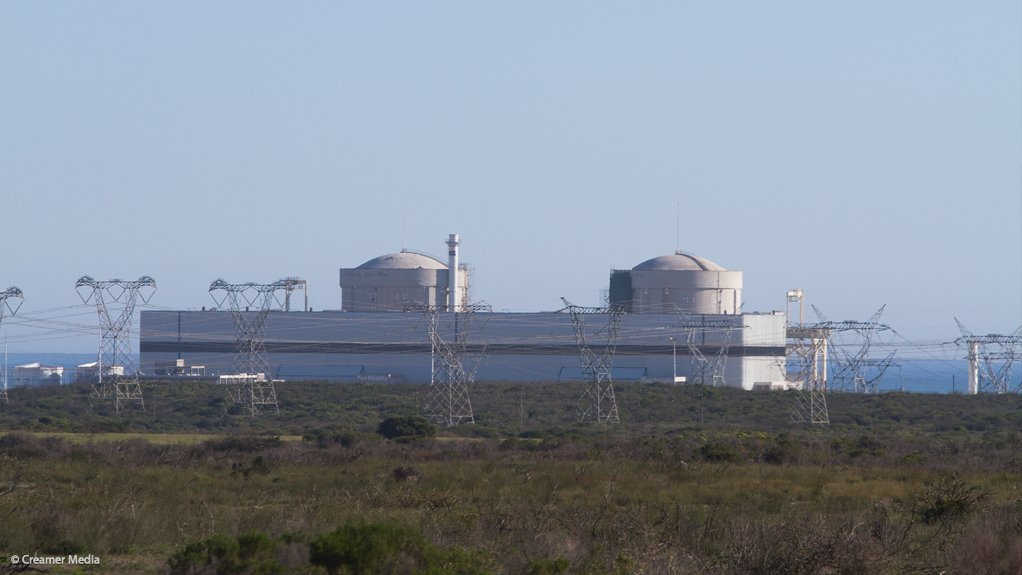Velaphi Ntuli has returned as the general manager of Koeberg nuclear power station after he was suspended in June 2021 over performance issues - allegations of which he has since been cleared.
At the time of his suspension, Koeberg's Unit 1 had not returned to service in May 2021 as scheduled.
The delay in returning Unit 1 to service contributed to loadshedding escalating to Stage 4 in June - a first in nine months.
Ntuli was subsequently suspended by former Eskom CEO André de Ruyter while investigations into the performance of Koeberg power station were conducted. He was also given an opportunity to provide evidence in the inquiry about the station's performance and that of his own.
Ntuli, who is an electrical engineering graduate from the University of Pretoria, had started working at Koeberg in 2001 and became head of nuclear engineering in 2016.
But following his suspension he was deployed to the position of general manager for coal and clean technology at Eskom.
In response to questions from News24, Eskom said that there was ultimately "no lack of performance finding" against Ntuli.
"In November 2023, Eskom decided to redeploy Mr Ntuli to his previous position as the power station general manager at Koeberg Nuclear Power Station as his expertise and experience is crucially needed to assist the power station in completing the steam generator replacement project, Koeberg's long-term operation programme, and continue to safely operate the plant once its licence is granted by the National Nuclear Regulator," it added.
But De Ruyter's fate at Eskom was different. He exited the power utility just over a year later.
Life extension
Koeberg is in the process of obtaining a licence to continue operating for another 20 years. It has scheduled the replacement of steam generators as part of its efforts to secure the licence.
Eskom recently completed the steam generator replacement at Unit 1 following multiple delays
Unit 2 went offline for its steam generator replacement in December 2023. Eskom is optimistic that the length of this outage will be shorter, having learnt from the challenges in Unit 1's outage.
At a briefing earlier in January, Eskom's group executive for generation Bheki Nxumalo said the plan was to bring Unit 2 back online by September.
Collectively, the units generate more than 1 800MW of power.
In the grander scheme of things, load shedding has become synonymous with South African life and government is taking steps to procure new generation capacity to address the ongoing energy crisis.
In December it announced three new power procurement bid windows.
As much as 5 000MW is to procured in Bid Window 7 of the renewable energy programme, 2 000MW through the country's first-ever gas public procurement round and 613MW of battery energy storage.
Later this year government will launch Bid Window 8 to procure 5 000MW more of renewable energy and 1 000MW of gas power specifically for Coega.
These procurement rounds are evaluated on their competitive pricing for energy, which Eskom will have to buy.
Eskom recently turned down the procurement of 100MW of power from Mozambique's power utility. "The cost of the 100MW offered is higher than the cost of Eskom’s coal fired generation and IPP renewable energy power plants. After careful consideration of the economic and technical parameters, a decision was taken not to pursue importation from the power plant," Eskom said in response to questions.
Eskom did not provide information on what exactly the tariff amounts are, but Electricity Minister Kgosientsho Ramokgopa previously told journalists during an energy briefing that they are "prohibitive".
"I do not think we can expose the country to such amount of tariffs. I am not at liberty to disclose what those numbers are, but take it from me, I do not think we can arrive at a rational justification for the amount asked," he said.
EMAIL THIS ARTICLE SAVE THIS ARTICLE
To subscribe email subscriptions@creamermedia.co.za or click here
To advertise email advertising@creamermedia.co.za or click here











